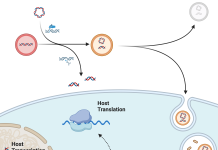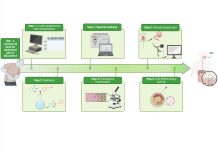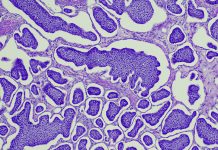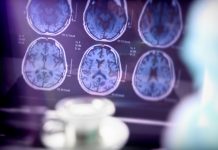Open Access Government produces compelling and informative news, publications, eBooks, and academic research articles for the public and private sector looking at health, diseases & conditions, workplace, research & innovation, digital transformation, government policy, environment, agriculture, energy, transport and more.
Home 2025
Archives
Chronic pain and healthcare education in Canada: Bridging the divide
Hansel Lui from the Michael G. DeGroote Institute for Pain Research and Care discusses inadequacies in healthcare education regarding chronic pain management in Canada and opportunities to close these gaps.
Novel treatments offer hope for neglected tropical diseases
This interview with Professors Achim Hoerauf and Marc Hübner explores their groundbreaking work, focusing on the development of novel drugs and the importance of collaborative partnerships in tackling these devastating diseases.
Process intensification: A game changer for the pharma market
Deborah McElhone, Head of Sustainability (Pharma) from CPI, argues that process intensification is a game changer for the pharma market.
Prenatal cannabis exposure and its lasting impact on memory
Professors Miranda Reed from Auburn University and Vishnu Suppiramaniam from Kennesaw State University have studied how prenatal cannabis exposure affects brain development and cognitive functions, including memory.
Engineering interkingdom communication for next-generation therapeutic approaches
Brian Snyder and Christopher H. Contag, from Michigan State University, discuss engineering interkingdom communication, which is not for palace intrigue, but for next-generation therapeutic approaches they argue.
Harnessing hybrid molecules for drug development
Stoyanka Nikolova, Professor from Paisii Hilendarski Plovdiv University, discusses the potential of harnessing hybrid molecules for drug development and their possible application in addressing the clinical challenge of irritable bowel syndrome.
Symptomatic vs. Disease-modifying treatments in neurological diseases: Where next?
An optimal drug for chronic neurological disease would slow down disease progression in the long term, with short-term symptomatic benefits. This would shorten clinical development timelines and reduce the cost and risk level for drug developers. Henri Huttunen Chief Scientific Officer (CSO) at Herantis Pharma Plc explains.
How the “tides” have turned in pharma manufacturing
Two seasoned experts from CPI, Medicines Manufacturing Innovation Centre, detail how the “tides” have turned in pharma manufacturing.
Can the arts be an effective tool to combat psychosis stigma?
There has been a rise in stigma for mental illnesses over the past few decades, particularly for psychotic symptoms. However, artistic representation may be the key to eliminating psychosis stigma.
The opioid crisis in canada – Governmental responses and strategies
Norm Buckley, Scientific Director at the Michael G. DeGroote Institute for Pain Research & Care, and Jason Busse, Director of the Michael G DeGroote National Pain Centre at McMaster University, discuss the complexities of chronic pain management and addressing the opioid crisis.
Why greener pharmaceutical manufacturing is vital for the industry and our health
Determined to tackle the carbon footprint of medicine, CPI’s Medicines Manufacturing Innovation Centre is addressing key sustainability issues in pharmaceutical manufacturing.
Are nanotextures enough to kill cancer cells?
Nanotextures on nanoparticles and implants to kill cancer cells in a more targeted manner may just be the key to tackling resistance to traditional cancer drugs.
Vaccine non-responders and severe adverse events
Eyer Klaus, an Associate Professor at Aarhus University’s Department of Biomedicine, explores the causes, impact, and potential resolutions of vaccine non-responsiveness and severe side effects.
Revolutionizing pain medication: Preventing addiction and side effects
Stephen Vanner, president of pHarm Therapeutics Inc., and Christoph Stein, inventor and co-founder, discuss a new class of analgesics for pain caused by tissue injury and inflammation.
Enhancing marathon safety: The role of low-dose aspirin in cardiac arrest prevention
Arthur J. Siegel, Medical Director at MGH Internal Medicine Associates, Belmont, MA, USA tells us how low-dose aspirin can support primary prevention of marathon-related cardiac arrest in middle-aged men with coronary atherosclerosis.
The extent and impact of the opioid crisis in Canada
The opioid crisis in Canada has been an issue for nearly a quarter of a century. Here, Norm Buckley and Jason Busse from the Michael G DeGroote Institute for Pain Research and Care, and the National Pain Centre discuss the issue, its effects both general and on specific communities, and what can be done about it.
Drug repositioning using multiple gene expression profiles
Chuo University’s Professor Y-h. Taguchi places focus on drug repositioning using multiple gene expression profiles
Understanding T lymphocytes inner workings to harness therapeutic potential
Leslie J. Berg, PhD from the University of Colorado, Anschutz School of Medicine, sheds light on understanding the inner workings of T lymphocytes to harness their therapeutic potential.
Can we do drug repositioning without disease gene expression?
Chuo University’s Professor Y-h. Taguchi examines the application of cutting-edge single-cell-based measurements in drug repositioning.
Lecanemab and other treatments: Glimmers of hope for alzheimer’s patients
Effective treatments for amyloid-associated neurological diseases are desperately needed; H. Robert Guy, CEO of Amyloid Research Consultants, talks us through the obstacles and opportunities associated with structure-based drug design.





















